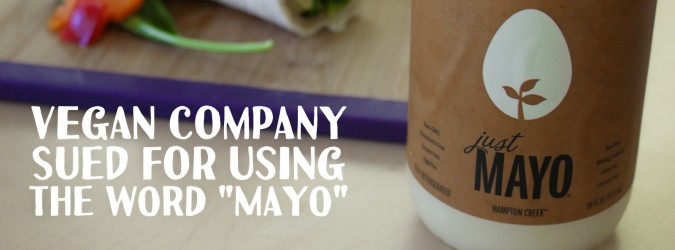Unilever PLC, the maker of Hellman’s mayonnaise, has sued California startup Hampton Creek Inc. accusing the company of false advertising for calling its eggless spread “mayo”. The consumer products giant is demanding that the maker of Just Mayo change its label and is also seeking compensation for unspecified damages. The question for food companies is could this costly lawsuit have been avoided?
The FDA regulations state that “mayonnaise” must contain at least 65% oil by weight, vinegar, and egg or egg yolks. However, Just Mayo doesn’t include eggs, instead it gets its emulsification from vegan pea protein. Hampton Creek states that it calls its spread “mayo”, not “mayonnaise”, and therefore argues that it doesn’t need to comply with the “mayonnaise” definition.
Unilever also claims that Just Mayo misleads customers who think they are buying actual mayonnaise, not an egg-free spread. Whether this is true or not will be determined by the courts, however, under Federal law products are “misbranded” if their “labeling is false or misleading in any particular”. See 21 U.S.C. 343. So how is Just Mayo misleading? Well, for one, the label for Just Mayo features an egg with a plant growing over it and it refers to its product as “mayo” and mayonnaise” in its marketing materials. We aren’t saying that Just Mayo is “misbranded”, again that is for the courts to decide, but food manufacturers should watch this case closely as it may have an impact their business going forward.
Food manufacturers should ensure they thoroughly understand FDA regulations before labeling their products. This is not only to avoid a false advertising lawsuit, but also to avoid misbranding. It’s a prohibited act to distribute misbranded products and manufacturers can be subject to FDA enforcement and/or private party lawsuits. So to address the initial question posed above, whether the lawsuit could have been avoided, would be difficult to determine. However, food companies may minimize the chances of their products facing a legal challenge by consulting with an attorney familiar with FDA regulations.
If you need assistance navigating or complying with the laws affecting your food or beverage businesses, please feel free to contact our attorneys at Morsel Law.

